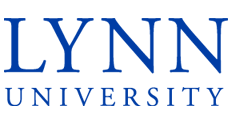Graduate Student Dissertations, Theses, Capstones, and Portfolios
Date of Award
8-6-2002
Document Type
Thesis
Granting Institution
Lynn University
Degree Name
Master of Science (MS)
Degree Program
Sports and Athletics Administration
Department
School of Graduate Studies
First Advisor
Richard A. Young
Abstract
As can be said for many organizations, the National Collegiate Athletic Association (NCAA) will have many issues to contend with in the 21' century. New rules and regulations have been implemented over the past 10 years among all three divisions. Different and similar issues face all universities and colleges holding membership in the Association, which is based in Indianapolis, Indiana. One of the major issues facing the NCAA is whether student-athletes should be paid for their services due to the commercialization that has taken place over the past 25 years.
All NCAA sponsored sports are amateur based. However, with many millions of dollars being distributed between member conferences and institutions, why are these essential individuals (the student-athletes) left with what is perceived as insufficient finding (a full-athletic scholarship). Within the three divisions of the NCAA, the issue of paying college athletes only really effects Division I, which produces the most amount of professional athletes in all sports on an annual basis. In reality, only two NCAA sports produce the major source of revenue. These are the "big two" (football and men's basketball), which generate enormous television and radio packages.
In a seven-question survey distributed to college administrators, it became apparent that many issues stand in the way of student-athletes receiving payment. One could contend that as the "big two" are the only sports drawing enormous profits that student-athletes in these two respective sports should be paid. However, federal regulations such as Title IX would not allow payment in men's sports without similar compensation in women's sports.
In the coming years, the issue of compensating student-athletes will not vanish. There will likely be some unsuccessful attempts to expand the traditional scholarship (tuition, room, board and books) in the future. One can only hope and demand that those people making these difficult decisions are making them with the interests of the correct people in mind: The Student-Athlete.
Recommended Citation
Matus, D. (2002). A study on Intercollegiate Athletics: Should student-athletes receive pay for play? [Master's thesis, Lynn University]. SPIRAL. https://spiral.lynn.edu/etds/265



